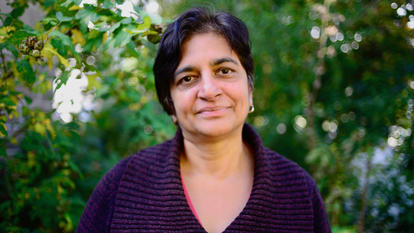Bloomberg News Features Courtney Coile’s Research on Life Expectancy and Government Benefits

In the United States, the wealthy are increasingly living to older ages than the poor, and therefore end up receiving more money over their lifetimes from taxpayer-funded entitlement programs such as Social Security and Medicare than lower-income populations, according a study by Wellesley College Professor of Economics Courtney Coile and other researchers that was recently highlighted in a Bloomberg news article.
In their report, “The Growing Gap in Life Expectancy by Income,” Coile and her colleagues pointed to a widening life expectancy gap between older wealthy and lower-income Americans. According to their study, because the wealthiest are living longer, they are benefitting more from government entitlement programs.
“We hear that people are living longer, but that’s most true for people who are well off,” said Coile. “Gains in life expectancy are not shared equally. Longevity provides an economic advantage, and it is paid for by the taxpayer. Live longer, collect more.”
The study points out a historical trend: Life expectancy has risen faster for people who are the most educated and earn the most money. Less-educated, lower-income people have shorter life spans, the study indicated.
Shorter life expectancies are generally health related and can be affected by conditions ranging from stress to poor nutrition to lack of exercise to lack of access to health care. The study noted that the reasons for the growing life expectancy gap are less clear, but could include widening income inequality or a stronger relationship between education and health.
In projections based on data from the Health and Retirement Study, the researchers found that in 1980, a man of 50 in the wealthiest fifth of income earners could expect to live to almost 82 years, about five years longer than a 50-year-old man in the lowest-income group. He could expect to earn $103,000 more in Social Security benefits over his lifetime than his poorer counterpart and about the same total amount from all government programs combined, including programs like Medicaid and Disability Insurance that tend to provide greater benefits to those with lower earnings.
That gap has widened over the years. In 2010, a man of 50 in the wealthiest group could expect to live to almost 89, while a man at the other end of the financial spectrum could expect to live just past age 76. By living longer, the wealthier man would now earn $173,000 more in Social Security benefits and $132,000 more in all government benefits combined.
Coile, who is director of the Knapp Social Science Center at Wellesley, specializes in the economics of aging with a focus on retirement and disability policy. She worked with a team of 13 other researchers under the auspices of the National Research Council, the operating arm of the National Academy of Sciences. The research team was called the Committee on the Long-Run Macroeconomic Effects of the Aging U.S. Population.
Coile said the report’s findings could be useful to government policymakers as they address issues related to an aging population, including evaluating potential modifications to benefit formulas and eligibility requirements for government programs. “Changes will have a different effect on the rich and poor, and these trends are things that should be taken into account,” she said.



